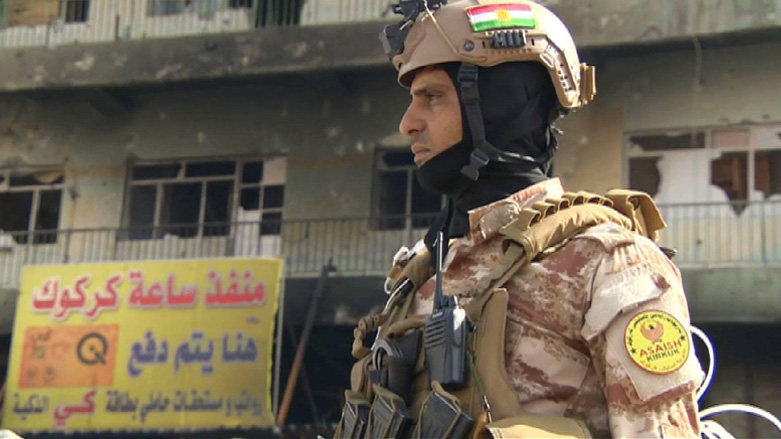KRG responds to HRW report on detainees, says it awaits move from Baghdad

ERBIL, Kurdistan Region (Kurdistan 24) – The Kurdistan Regional Government’s (KRG) Committee to Evaluate and Respond to International Reports denied claims that 350 Arab detainees were forcibly “disappeared” from Kirkuk.
In response to the Dec. 21 Human Rights Watch (HRW) report claiming 350 prisoners had disappeared from the Kurdistan Region’s jails in Kirkuk, the committee clarified that it would have been impossible as there was “only one provisional prison establish in Dubs” which was used during the Hawija offensive.
“Not one detainee was held in Kirkuk Asayish detention facilities,” the response read. According to the committee, around one thousand Sunni Arab Islamic State (IS) affiliates turned themselves into the Kurdish security forces and were transferred to Erbil.
“There were no prisons in Kirkuk. The role of the Kirkuk Asayish was to facilitate the transfer of detainees.”
The HRW report claimed the prisoners had been “forcibly disappeared” following the Oct. 16 attack and takeover of Kirkuk province by Iraqi forces and Iranian-backed Shia Hashd al-Shaabi militias. The committee responded that KRG security forces have carried out “specific processes and procedures since the [IS] war began,” when dealing with militants.
“A screening process commences upon the arrival of the displaced persons to the frontlines to prevent [IS] affiliates from infiltrating the region. KRG forces notify family members of [IS militants] and affiliates of their arrest, the right to see their families, and the right to an attorney. They are later transferred to reception centers where they are provided with essential aid and services.”
The 350 prisoners, however, had surrendered to the Kurdish forces and were not investigated as they admitted to their own involvement with the jihadist group. The detainees were transferred to camp Jed’a, which is administered by the Federal Government of Iraq.
The KRG statement reiterated its readiness to work with the Iraqi federal government and the international community in handling IS cases. It also called on the Kurdish Presidency’s Council of Ministers to form a joint committee headed by the KRG Committee of International Reports with UNAMI and the cooperation of Ministry of Work and Social Affairs to “determine the fate of the IS detainees” in Kurdistan.
“The Iraqi Federal Government has not begun legal procedures for this matter yet,” the statement concluded.
